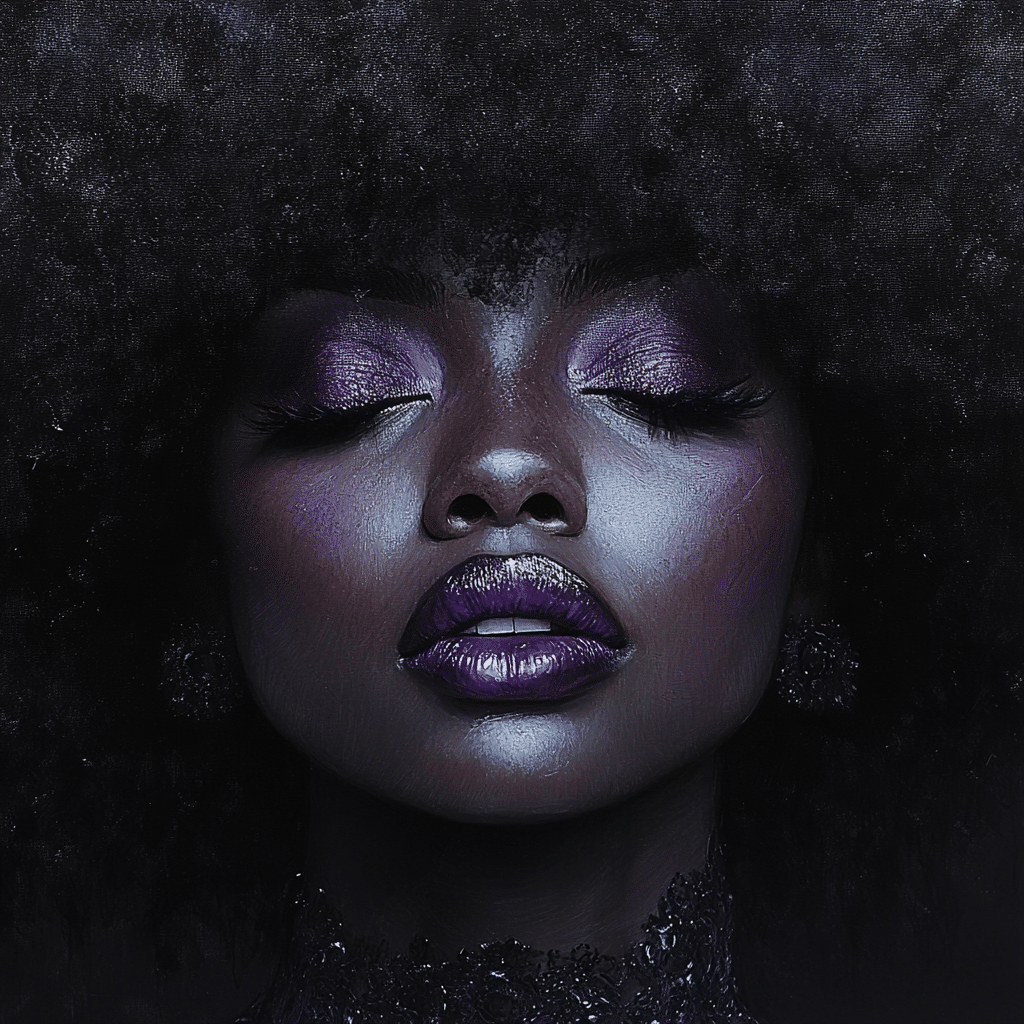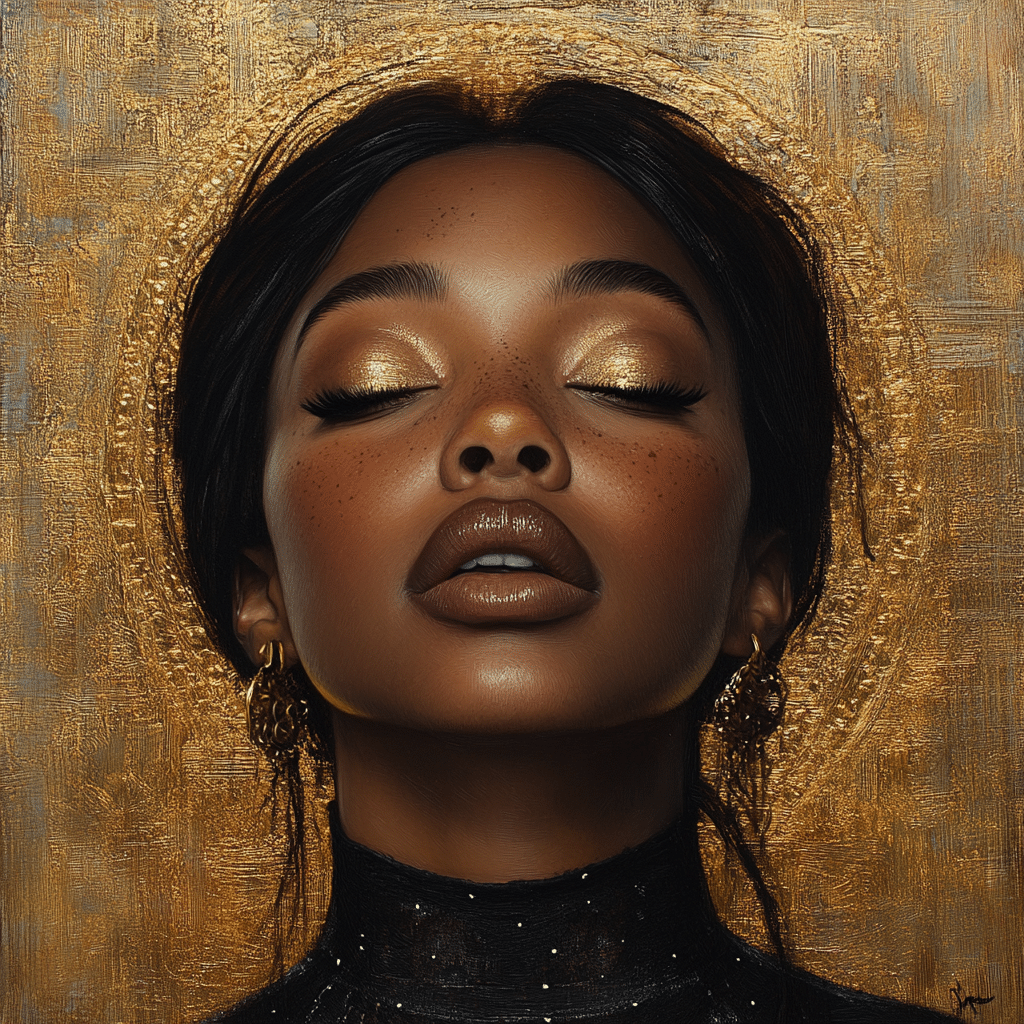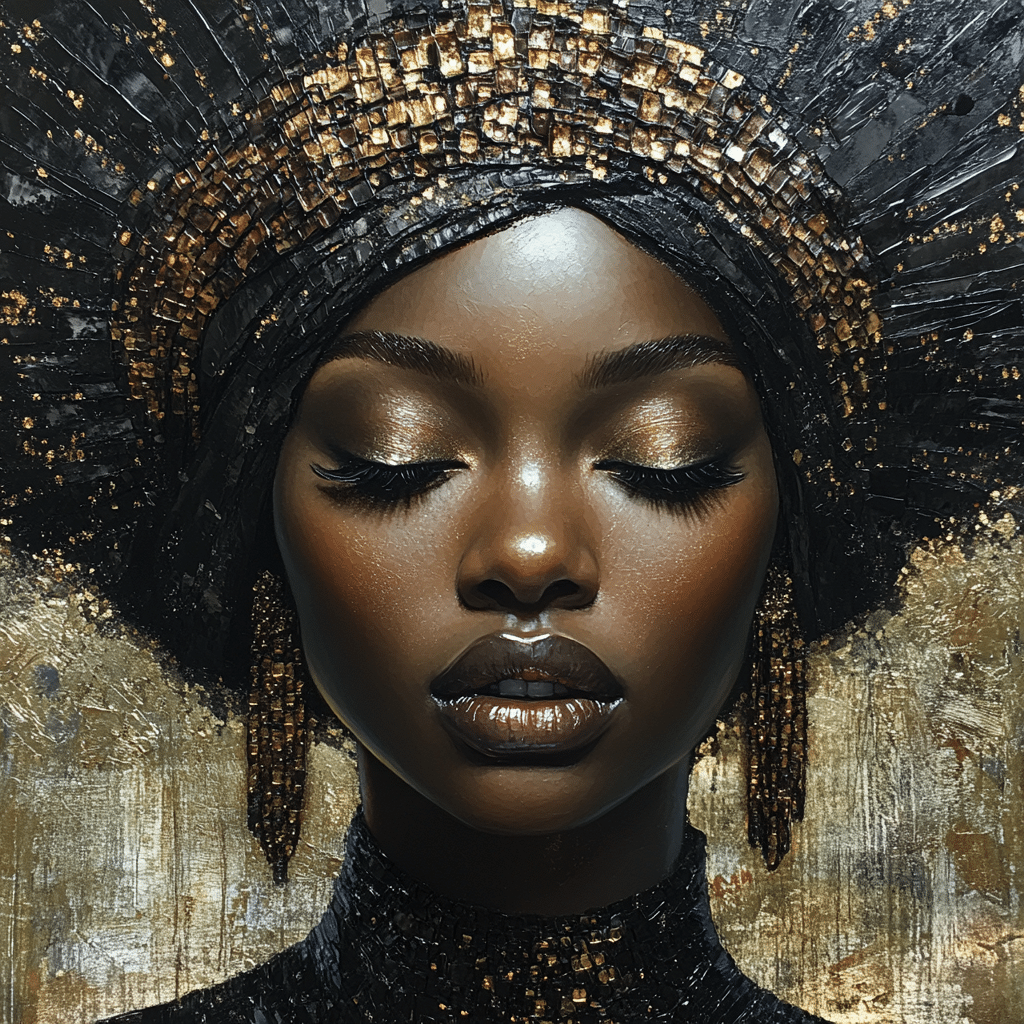Defining the Evolution of Black Womens Art
Black womens art has undergone a monumental transformation over the decades, embodying a rich tapestry of history, culture, and identity. From traditional African influences to modern interpretative expressions, the journey of artistic creations by black women is captivating and significant. In 2024, black womens art continues to break new ground, celebrating heritage through various mediums including painting, sculpture, digital art, and performance. At the forefront of this evolution are artists who challenge societal norms, aiming to fill the gaps often left by a predominantly Western art history.
Trailblazing Artists Shaping the Contemporary Scene
Kerry James Marshall’s Revolutionary Depictions
Kerry James Marshall, celebrated for his contributions to art reflecting black narratives, excels in his portrayal of black women. His powerful, large-scale paintings often highlight women in everyday settings, artfully confronting the pervasive lack of black female representation in Western art history. Each brushstroke by Marshall serves as a testament to the overlooked stories, bringing them to the forefront with vivid and unapologetic clarity.
The Impact of Kara Walker’s Silhouettes
Kara Walker’s stark, silhouetted figures are a poignant exploration of African American women’s experiences. Her exhibitions, such as “My Complement, My Enemy, My Oppressor, My Love,” dive deep into race, gender, and power dynamics. Walker’s work ingeniously uses historical references to salute the contributions and struggles of black women, creating a space where candid dialogues about the past and present can unfold.
Black Womens Art in Digital Spaces: The Work of LaToya Ruby Frazier
LaToya Ruby Frazier’s photography and video work are modern takes on black womens art, seamlessly combining deeply personal narratives with social commentary. Her series, “The Notion of Family,” explores the impact of economic and environmental negligence on black communities. Through her lens, Frazier focuses on the resilience and strength of black women, transforming their everyday struggles and victories into powerful, visual storytelling.

| Category | Details |
| Influential Artists | – Faith Ringgold – Kara Walker – Betye Saar – Nina Chanel Abney |
| Types of Art | – Paintings – Sculptures – Collages – Quilts – Visual Narratives |
| Notable Works | – Faith Ringgold: *”Tar Beach”* – Kara Walker: *”A Subtlety”* – Betye Saar: *”The Liberation of Aunt Jemima”* – Nina Chanel Abney: *”What, What, What”* |
| Key Movements | – Harlem Renaissance – Civil Rights Movement Art – Black Feminism Art |
| Artistic Themes | – Racial Identity – Feminism – Social Justice – Cultural Heritage |
| Notable Exhibitions | – “Soul Of A Nation: Art in the Age of Black Power” – “We Wanted a Revolution: Black Radical Women, 1965-85” |
| Contributions | – Addressing social and racial injustices – Breaking stereotypes – Promoting cultural understanding – Influencing new generations of artists |
| Recognition & Awards | – National Academy of Design – MacArthur Fellowships |
| Educational Institutions | – Spelman College Museum of Fine Art – Studio Museum in Harlem |
Celebrating Black Womens Art Collectives
The Influence of The Black Women’s Committee
Founded in the early 2000s, The Black Women’s Committee remains a vital force in promoting and supporting black womens art. Their annual exhibitions are critical platforms where emerging black female artists can showcase their work, gain public exposure, and receive critical acclaim. This collective not only nurtures talent but also preserves and celebrates the rich heritage black women bring to the art scene.
The Significance of the Black Art Futures Fund
The Black Art Futures Fund, a philanthropic initiative, has been pivotal in funding projects by black female artists. Focusing on grassroots organizations and individual creators, this fund fosters opportunities that mainstream funding bodies might overlook. By doing so, it empowers black women to create, innovate, and thrive in a competitive art world.
The Cultural Impact of Black Womens Art on Society
Education and Outreach Initiatives
Educational programs, such as those hosted by the Museum of the African Diaspora (MoAD) in San Francisco, play a critical role. Workshops and lectures specifically dedicated to exploring black womens art provide invaluable historical context. These initiatives inspire future generations, equipping young black women with the knowledge and confidence to pursue their artistic dreams.
Black Womens Art in Public Spaces
Public art installations by artists like Simone Leigh and Wangechi Mutu bring black womens art into everyday life. Leigh’s “Brick House,” a magnificent bronze bust of a black woman displayed on the High Line in New York, is a striking example. It challenges and broadens public perceptions, fostering inclusivity and representation in public spaces across the world.

Future Directions for Black Womens Art
Embracing Technology and Multimedia
The integration of virtual reality exhibits and augmented reality artworks is on the rise among black female artists. These cutting-edge technologies offer innovative ways to experience art and help preserve and disseminate the rich heritage of black womens art globally. This technological embrace promises to unlock new realms of creativity and interaction, inviting a wider audience to experience the profound narratives and vivid expressions of black womens art.
Policy Advocacy and Financial Support
Amplifying the voices of black women in the art field requires continuous advocacy for equal opportunities, representation, and funding. Public policies encouraging the display and acquisition of works by black female artists in both public and private collections are essential. Such supports will be key in ensuring their legacy and influence continue to grow, breaking barriers and setting new standards in the art world.
Celebrating black womens art means recognizing exceptional artistic talents and acknowledging the rich heritage and influential narratives these women bring to the world. Their work inspires, educates, and challenges societal norms, paving the way for a more inclusive and diverse artistic landscape. As we move through 2024, prioritizing the support and elevation of black womens art will remain crucial in shaping a richer, more equitable cultural future.
Celebrating the Rich Heritage of Black Women’s Art
Ensemble of Creativity
Black women’s art resonates deeply with rich cultural roots, translating history into vibrant canvases. Did you know that this art form is a tapestry woven with threads of resilience, courage, and innovation? From the legacy of the Harlem Renaissance to contemporary artistic movements, black women’s art has consistently redefined the boundaries of self-expression. Interestingly, some creators are influenced by a diverse range of inspirations, including figures far removed from traditional African art, such as Harris Glenn milstead, also known as Divine.
Echoes of Ancestry
In communities across the globe, like Bilsthorpe, black women’s art showcases a stunning fusion of ancestral memories and modern aspirations. The motifs often echo life in bygone eras while simultaneously addressing current issues like identity and social justice. You wouldn’t believe how much this artistic heritage contributes to a sense of belonging and pride, not only for the artists themselves but also for their audiences. Estate lawyers near me even highlight how art has influenced legal frameworks addressing the preservation of cultural assets.
Intriguing Inspirations
Surprisingly, some black women artists draw inspiration during the most unexpected times – yes, even while dealing with everyday occurrences like a blowfish hangover. This adds an unexpected twist to the creative process, making their work even more relatable and enthralling. Their art is often a conversation starter, breaking down complexities that surround discussions on race, gender, and history. And in places like Bishops Waltham, the community engagement around such art forms can be truly transformative, fostering a deeper appreciation for cultural diversity.
Empowerment through Art
For many, black women’s art is more than just a creative outlet; it’s a formidable instrument of empowerment. Such artistic endeavors challenge societal norms and pave the way for a more inclusive narrative. They inspire people to probe questions such as What Does exempt mean on Taxes, as financial literacy becomes intertwined with cultural advocacy. These artworks amplify marginalized voices and imbue communities with newfound confidence, much like how subordination agreements provide clarity in mortgage dealings, ensuring equity and fairness.
By celebrating this rich heritage, we not only honor the past but also illuminate the path forward, showcasing the transformative power of black women’s art on both personal and societal levels.




